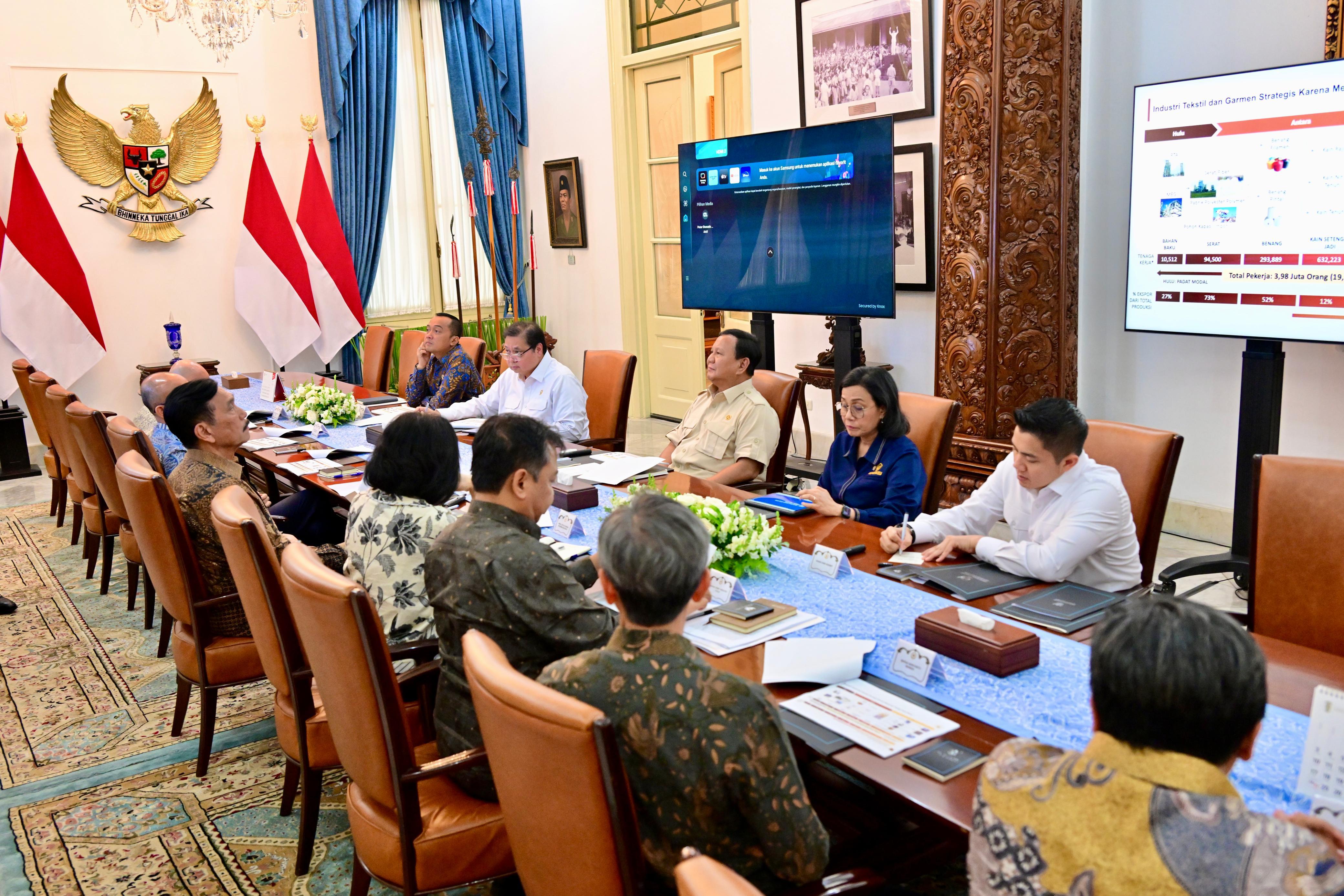The Indonesian government is intensifying efforts to boost competitiveness and accelerate investment in labor-intensive industries, focusing on sectors such as textiles, footwear, and food processing. These industries, known for their significant employment potential, have been a cornerstone of Indonesia’s economic strategy to combat unemployment.
During a key meeting at the Merdeka Palace on March 19, 2025, President Prabowo Subianto directed a large-scale deregulation initiative aimed at creating jobs, enhancing industry competitiveness, and stimulating investment in critical sectors. One of the most pressing concerns highlighted was the textile and textile products sector, which currently employs nearly 4 million people and generates exports worth over USD 2 billion annually.
Minister of Economic Affairs, Airlangga Hartarto, provided further insights during a press briefing after the meeting. He explained that the government’s focus would be on streamlining the supply chain, improving access to raw materials, and addressing illegal imports that hinder the sector’s growth. Hartarto emphasized the importance of simplifying bureaucratic processes and harmonizing tariffs to create a more efficient environment for businesses.
Another key measure announced was the government's readiness to combat dumped goods, which often undercut local products, through anti-dumping actions. Hartarto also noted that the government is exploring ways to align industry regulations and facilitate smoother operations across sectors, with a particular emphasis on textiles, footwear, and food processing.
In addition to addressing regulatory challenges, President Subianto encouraged integrating labor-intensive programs into Indonesia’s National Strategic Projects (PSN), allowing these sectors to benefit from streamlined permits and incentives. This is seen as a critical step to attracting more investments and stimulating economic growth, especially in uncertain global markets.
The government is also planning a major revitalization of production machinery, providing investment credits totaling IDR 20 trillion with a 5% interest subsidy over 8 years. This initiative targets sectors like textiles, footwear, furniture, and food processing, offering significant financial relief to businesses struggling with outdated equipment.
The deregulation effort is particularly timely, as global markets are witnessing shifting trade patterns, especially in Europe. The European Union (EU) remains one of Indonesia’s largest textile markets, accounting for nearly 30% of global demand. As such, completing the Indonesia-EU Comprehensive Economic Partnership Agreement (I-EU CEPA) is becoming increasingly urgent to maintain competitive access to these key markets.
Hartarto emphasized that while geopolitical uncertainties persist, protecting domestic industries from global volatility is crucial. He also highlighted the importance of fostering a conducive environment for foreign and domestic investments through regulatory reforms and infrastructure improvements.
PHOTO: EKON.GO.ID
This article was created with AI assistance.
Read More






 Saturday, 31-01-26
Saturday, 31-01-26







